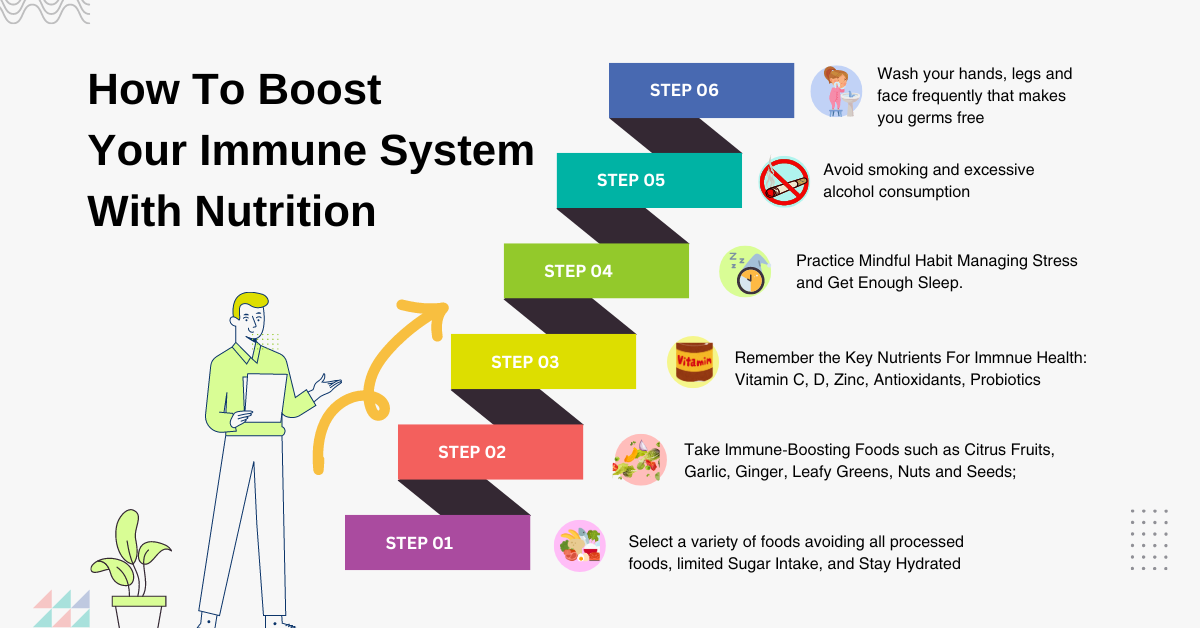Introduction:
In pursuing a healthy lifestyle, the importance of mental health is often underestimated and sometimes completely ignored. This article aims mainly to delve into the complex relationship between mental and physical health, emphasizing the central role of mental well-being in achieving and maintaining an overall healthy lifestyle.
Mental Health and Physical Health:
 The interconnectivity of mental and physical health is undeniable. Both components are integral parts of the intricate machinery that is the human body. Neglecting mental health can have profound consequences on physical well-being, and vice versa. The mind-body connection is a dynamic and reciprocal relationship that influences each other in ways that impact our day-to-day lives.
The interconnectivity of mental and physical health is undeniable. Both components are integral parts of the intricate machinery that is the human body. Neglecting mental health can have profound consequences on physical well-being, and vice versa. The mind-body connection is a dynamic and reciprocal relationship that influences each other in ways that impact our day-to-day lives.
Research consistently supports the notion that mental health significantly affects physical health outcomes. For example, chronic stress, often stemming from untreated mental health issues, can contribute to a range of physical health problems, including cardiovascular issues, weakened immune function, and digestive disorders. Conversely, chronic physical conditions can also take a toll on mental health, leading to increased stress, anxiety, and depression.
Importance of Mental Health:
The importance of mental health extends beyond the absence of mental illness; it encompasses a state of overall well-being and the ability to cope with life’s challenges. Prioritizing mental health is crucial for several reasons, including stress management, decision-making, and fostering positive relationships.
Stress is an inevitable part of life, and how one manages it can profoundly impact both mental and physical health. Chronic stress has been linked to a myriad of health issues, ranging from headaches and sleep disturbances to more severe conditions like hypertension and cardiovascular diseases. By prioritizing mental health, individuals can develop effective coping mechanisms to navigate life’s stressors, reducing the risk of stress-related health problems.
Moreover, mental health plays a pivotal role in decision-making. A healthy mind is better equipped to make informed and rational choices, leading to healthier lifestyle behaviors. This includes decisions related to diet, exercise, and other self-care practices that contribute to overall well-being.
Positive relationships are another aspect influenced by mental health. A person with sound mental well-being is more likely to form and maintain healthy connections with others. Strong social support has been shown to have numerous health benefits, from improving mental health outcomes to enhancing physical health and longevity.
Strategies for Enhancing Mental Health:
Understanding the importance of mental health is the first step, and implementing strategies to enhance it is equally crucial. Several proven methods contribute to improved mental well-being, and individuals can tailor these strategies to fit their preferences and lifestyles.
>>Regular Exercise:
 Physical activity is not only beneficial for the body but also for the mind. Exercise releases endorphins, the body’s natural mood elevators, which can help alleviate symptoms of depression and anxiety. Engaging in regular exercise, whether through cardiovascular activities, strength training, or mindful practices like yoga, can contribute to improved mental health.
Physical activity is not only beneficial for the body but also for the mind. Exercise releases endorphins, the body’s natural mood elevators, which can help alleviate symptoms of depression and anxiety. Engaging in regular exercise, whether through cardiovascular activities, strength training, or mindful practices like yoga, can contribute to improved mental health.
>>Mindfulness Practices:
 Mindfulness involves paying attention to the present moment without judgment. Practices like meditation, deep breathing exercises, and mindfulness-based stress reduction (MBSR) have been shown to reduce stress, anxiety, and improve overall mental well-being. These techniques promote self-awareness and can help individuals manage their reactions to stressors.
Mindfulness involves paying attention to the present moment without judgment. Practices like meditation, deep breathing exercises, and mindfulness-based stress reduction (MBSR) have been shown to reduce stress, anxiety, and improve overall mental well-being. These techniques promote self-awareness and can help individuals manage their reactions to stressors.
>>Balanced Nutrition:
 Nutrition plays a crucial role in both physical and mental health. A well-balanced diet that includes a variety of nutrients supports optimal brain function and can positively impact mood. Consuming whole foods, rich in vitamins, minerals, and antioxidants, can contribute to overall well-being.
Nutrition plays a crucial role in both physical and mental health. A well-balanced diet that includes a variety of nutrients supports optimal brain function and can positively impact mood. Consuming whole foods, rich in vitamins, minerals, and antioxidants, can contribute to overall well-being.
>>Dreamless Quality Deep Sleep:
Dreamless Quality Deep Sleep is essential for mental health. Lack of sleep can impair cognitive function, increase irritability, and exacerbate symptoms of anxiety and depression. Establishing a consistent sleep routine and creating a conducive sleep environment are crucial for maintaining good mental health.
>>Social Connections:
Building and maintaining positive relationships is a fundamental aspect of mental health. Social connections provide emotional support, reduce feelings of loneliness, and contribute to an overall sense of well-being. Prioritizing time with friends and family and engaging in social activities can positively impact mental health.
>>Professional Support:
When mental health challenges arise, seeking professional support is a proactive and essential step. Mental health professionals, including therapists, counselors, and psychiatrists, are trained to provide guidance and support. Therapy sessions can offer a safe space for individuals to explore and address their mental health concerns.
The Impact of Neglecting Mental Health:
Neglecting mental health can lead to a cascade of negative consequences that affect various aspects of an individual’s life. Chronic stress, one of the most common outcomes of untreated mental health issues, has been linked to a range of physical health problems. These may include cardiovascular diseases, digestive disorders, and compromised immune function.
 Untreated mental health conditions, such as anxiety and depression, can significantly disrupt daily functioning. They can lead to decreased productivity, difficulty maintaining relationships, and an overall decrease in enjoyment of life. Additionally, the stigma surrounding mental health issues can prevent individuals from seeking the help they need, exacerbating the negative impact on their well-being.
Untreated mental health conditions, such as anxiety and depression, can significantly disrupt daily functioning. They can lead to decreased productivity, difficulty maintaining relationships, and an overall decrease in enjoyment of life. Additionally, the stigma surrounding mental health issues can prevent individuals from seeking the help they need, exacerbating the negative impact on their well-being.
In some cases, a person who neglects his mental health gets addicted to various addictive substances that increase his inner beast. It can become dangerous for him as well as for his society. Individuals who turn to substance abuse as a way to cope with emotional distress or pain become trapped in a vicious cycle of mental health challenges and substance abuse from which there is no way out.
Furthermore, the impact on mental health should not be underestimated by emphasizing physical health. Because both mind and body complement each other. When mental health is neglected, it tends to affect physical symptoms. Psychosomatic symptoms, such as headaches, digestive problems, and chronic pain, are often caused by underlying mental health concerns.
Conclusion:
 In conclusion, mental health is an indispensable component of a healthy and fulfilling lifestyle. The interconnectedness of mental and physical health underscores the need to prioritize mental well-being for overall wellness. By recognizing the importance of mental health, implementing strategies to enhance it, and seeking professional support when needed, individuals can cultivate a healthy mind, paving the way for a healthy and satisfying life.
In conclusion, mental health is an indispensable component of a healthy and fulfilling lifestyle. The interconnectedness of mental and physical health underscores the need to prioritize mental well-being for overall wellness. By recognizing the importance of mental health, implementing strategies to enhance it, and seeking professional support when needed, individuals can cultivate a healthy mind, paving the way for a healthy and satisfying life.
Remember, a healthy mind is the key to a healthy life. It is an ongoing journey that requires attention, care, and a commitment to nurturing both mental and physical well-being. By embracing the significance of mental health, we empower ourselves to lead happier, more balanced lives, and contribute to a society that values and prioritizes the mental well-being of its members.
N.B:
This article is for informational purposes only and should not be considered as medical advice. Always consult with a healthcare professional before making any changes to your lifestyle or treatment plan.










